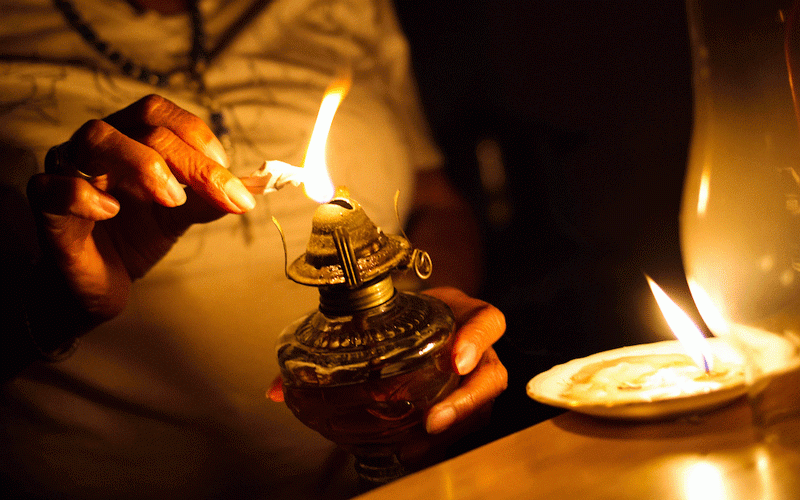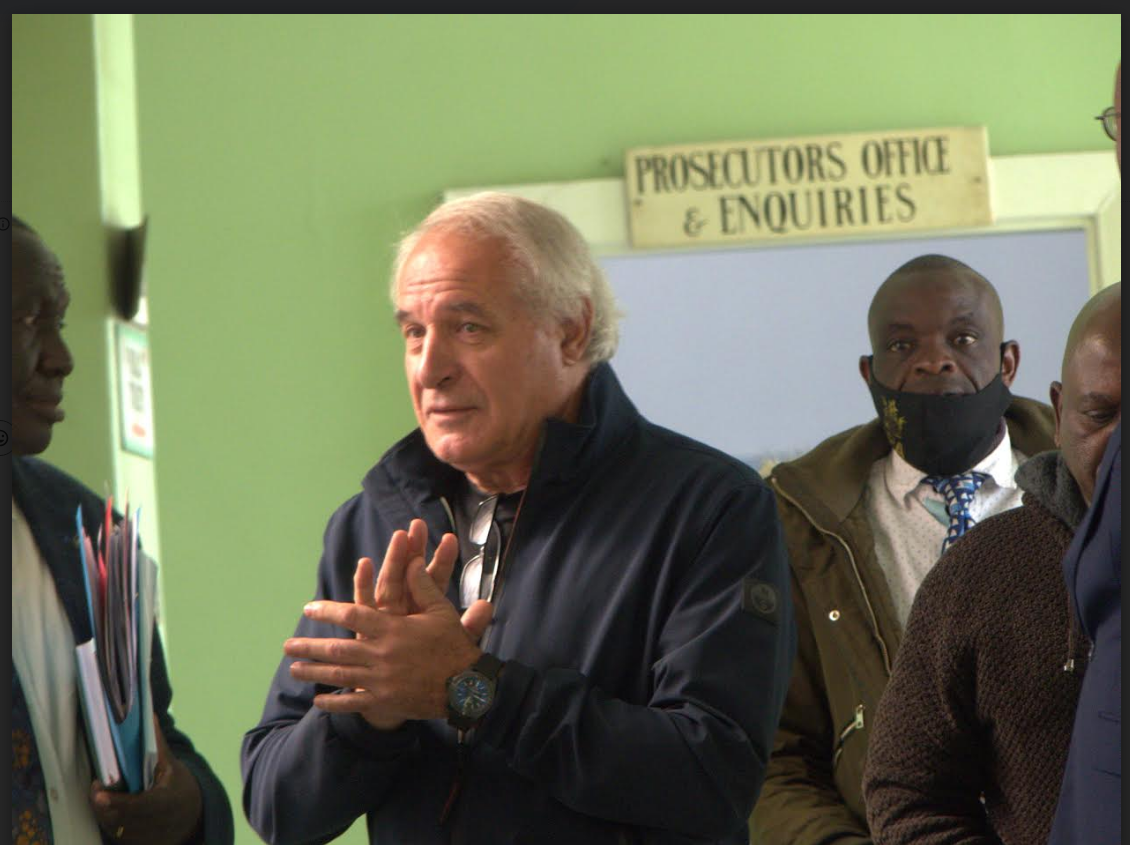
Anita Dube uses an old newspaper to fan off flies hovering around a dish of chicken cuts.
Her colleagues selling other meats including “fresh” fish are trying to contain the marauding common green bottle fly that has been attracted by the strong smell emanating from the containers.
Despite the unbearable smell, for Dube, who for the past five years has been selling meat in the open at Chigovanyika business centre in St Mary’s, Chitungwiza, it’s business as usual and she is determined to clear her stock, lest it goes bad.
“The meat is almost bad, but it can be consumed,” said Dube.
“I want to make sure that I sell everything in the dish before I go back home, even if it means selling the meat for a song.
“The meat was affected by the power cuts and for two days it was not refrigerated.
“If I get rid of this stock, I might stop this business until this prolonged load-shedding exercise is over.”
Dube is among a myriad of meat vendors and other small businesses in Chitungwiza and other parts of the country that have been affected by the current severe electricity blackouts.
- Severe power outages loom: Zesa
- ZVDT laments lack of development in Zambezi Valley
- €30m set for Kariba Dam wall rehab
- Letters: Democratise natural resource governance
Keep Reading
The Zimbabwe Electricity Transmission and Distribution Company (ZETDC) said the current load shedding, lasting between 18 and 22 hours, was due to depressed generation capacity at its hydro-power station as a result of plummeting water levels in Kariba Dam.
Power generation at the Kariba power station has gradually been declining to reach a low of 200 megawatts (MW) despite having an installed capacity of 1 050 MW.
The Zambezi River Authority (ZRAS) recently directed the Zimbabwe Power Company (ZPC) to slash electricity generation capacity at the Kariba South hydro station to 300 megawatts.
The power station provides about 70% of the country’s power requirements.
Energy and Power Development minister Soda Zhemu recently said the country does not have enough money to import electricity, given the fact that the neighbouring countries that supply power to Zimbabwe are also facing power generation challenges.
For Gift Josamu, a welder in Zengeza 1, he has to adjust his working time to suit the load-shedding schedule.
“I spent the day doing something else or sleeping and only start my welding job at 10:30pm when power is restored,” Josamu said.
“I operate from my house, so it’s not difficult working in the middle of the night.
“I don’t mind getting robbed because I have no choice.”
Josamu said a number of colleagues in the welding industry have since stopped operations.
“It’s difficult to go to the home industries and work at night,” he said.
“As a result, a number of colleagues in this business have stopped working and business in general has gone down.”
A popular butchery at Zengeza 2 shopping centre now closes shop during the week and opens at weekends.
“We realise that most of our clients are people who frequent the nearby liquor shops and braai, so we are closing during the week because we don’t have power during the day,” said the butchery attendant.
Chitungwiza Residents Trust director Alice Kuvheya said the power blackouts were severely affecting residents.
“It is bad for the community, we can't do anything, we are self-employed,” she said.
“I wish ZEDTC can give us a schedule of the load shedding so we can plan accordingly.
“Minister Soda has failed; we miss former minister [Fortune] Chasi.”
Across town Clinton Mutamba of Arcadia suburb in Harare is trying so hard to concentrate on his pre Bio Science exam study, but the candlelight he’s using put together with his growling stomach are not doing him any favours.
Ever since the start of the prolonged load-shedding schedule, Mutamba’s life has been turned upside down as he has to juggle between studying and fetching water.
“This load shedding has in all honesty made my life a living hell,” he said.
“We hardly get tap water and we have been relying on the community electric borehole and churches who offer water.
“Since the power blackouts started, we no longer have access to water at any given time since their electric boreholes need power to generate water.
“Hence, we have to wait until electricity is restored to fetch water.”
He added: “It’s really hard to concentrate when you are studying on an empty stomach and having to wait for power that comes back at midnight to cook and fetch water to prepare for school.”
Bulawayo and other cities have also been plunged into a water crisis with the blackouts said to have disrupted operations at water works.
In a recent notice to residents, Bulawayo town clerk Christopher Dube said the local authority has been forced to suspend the 72-hour water shedding regime due to the power cuts.
This has seen residents going for a week without water amid fears of an outbreak of waterborne diseases such as cholera and typhoid.
“To protect the supply and distribution reservoirs from collapsing, the City of Bulawayo will suspend the current 72-hour shedding programme and cut off supply to areas until ZETDC restores power at pump stations and treatment plants,” Dube said in the notice.
In Buhera, Residents' Network Trust director Leonard Mabasa complained that power cuts have affected water supplies.
“The interrupted supply of water affects hygienic principles considering that fruits like mangoes and apples are a brisk business at the bus terminus,” Mabasa said.
Before the recent development, a number of cities have been grappling with acute water shortages.
Earlier this year, Redcilff residents went for three months without water.
In most instances where residents get water, it’s usually unsafe.
In August, the Harare City Council (HCC) ran out of water treatment chemicals, forcing the local authority to temporarily shut down the Morton Jaffray Water Treatment Plant.
Chegutu council spokesperson Brian Nkiwane said the situation has been dire in the town.
“In Chegutu we don’t have water tanks that deliver water to residents using gradients.
“Our entire reservoir uses electricity in terms of distributing water to residents,” Nkiwane said.
“We supply water to Jason Ziyaphapha Moyo Air Force Base and they have been without water for two weeks and you can tell the difficulties they are going through.
“These guys have got recruits as well as operations to run.
“As a council, we have been failing to provide them with clean and safe drinking water due to the issues of electricity.”
Before the crisis, the country had a power deficit of about 1 400 MW against demand estimated at 2 200 MW.
Combined Harare Residents Association acting director Reuben Akili told The Standard that the power crisis has disrupted people’s lives.
“There is a need to ensure that there is power so that people can have access to water,” Akili said
“This also comes against a background where we have reports of diarrhoea for instance in Glen View and Glenorah hence access to water impacts households' hygiene because it’s used normally for domestic purposes.
“If the power cuts persist we are going to face more serious problems, especially around water-borne diseases.”










